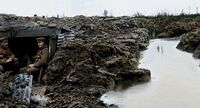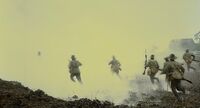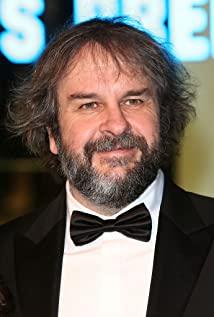"Photography makes time eternal." This is one of the many words that Andre Bazin said, and I saw it in "Jia Xiang 2". During the month I stayed in the Shamian Art Museum last winter, I had already played and watched "Jia Xiang 1", perhaps because I was afraid of taking on too much, "Jia Xiang 2" was too late to open the first page. This Wednesday After reading "Legend of the Sea" in class, I went back and looked through it and felt a lot. I don't know much about documentaries. I remember when I was a freshman, the Guangzhou Library opened a new documentary film studio and invited Zhang Yiqing from Hunan to be the opening guest. I ran over by himself and added his works similar to student homework to a piece of seven or eight films and watched them all. To be honest, watching all the works of a director in one day is a very bad thing. Fortunately, after a few hours of screening and chatting, I did get some feelings. For example, in terms of subject matter, "Kindergarten", "British and White", "The World of Zhouzhou", paying attention to social hot issues, paying attention to the emotions of people and animals, paying attention to marginal characters, etc., did give me a great social reflection on the audience. The signs of , and moved this very cheap word. But after seeing some of the following films, I feel that I have returned to the direction of "Danish Symphony" or "Turkish Watchtower", and returned to the level of photography and editing. The records are similar, but when it came to the last "Junior Red Sandalwood", he recruited a large number of literary and artistic workers, and then used many shooting techniques. Compared with his earlier works, the feeling of loneliness is conservative and complicated, and he is still afraid of old age. I was actually quite surprised that Peter Jackson could make such a thing. This "accident" refers to the form of a documentary. If he made a "Polish Blitz" or "The Sicilian Defense Line", it would be in line with my impression of him. But from the standpoint of the creator, whether the creation is a building based on the individual, or a response to the production of the public sphere. For the elaboration of history, Roland Barthes said: "Public history is an inexperienced fiction. What really exists is only the ringing and noisy harmony of countless (measured by personal existence) small histories." Served in the British Army from 1910 to 1919. I think this little history may be the key to the director making this film. The participation of his family in a certain event can often give the family a sense of family participation. I like to talk about my parents and even my grandparents. On this personal pedestal, the director used a large number of wartime documentary images, pictures and post-war interviews to construct countless small histories. This is the element of this film. However, the splicing of each element is still in accordance with the chronological order and interludes. , flashbacks, reversal, lines, and some classic montages, then rendered with sound effects and music. These give me a commercial feel, I don't like the word, well, give me a lighter, more catered audiovisual enjoyment, I prefer that way of saying it. This tendency (more relaxed and more catered for audio-visual enjoyment) has actually done a lot of BBC documentaries. When they film the animal world (don't remember the name, probably the subject matter), they will use animals to shape the story, such as the baby elephant and its father The mother, the growth of the parrot, the monkey family, etc., also have their own stories, and then use a large number of video clips to create a "one-minute rescue" story. The audience responded favorably and the audience was very wide. Well, I'm not saying it's fake, every shot and every element of them is real, it's just a trick of the director, borrowing someone else's mouth to tell his own words, it may be a cola story, or it may be a Heartfelt words. The main focus of the film is still post-war reflection and anti-war. This theme is actually very mainstream. There are many films that express this idea from different viewpoints. I prefer Sam Mendes' "Pot Cover" because he shoots war. It is very boring. It takes courage and great wisdom to make war very boring in this kind of film. Most of the anti-Japanese war movies in China still describe the glorious victory of the war or the tragic war without forgetting the national humiliation. The popularity of each war movie will bring the Chinese people's extreme resentment towards other countries. How should I put it? Recently, there was a film called "1950 They Are Young". It was about resisting U.S. aggression and aiding Korea. After reading the comments of my friends, I felt that I was still telling stories in the circle. I will go and watch it when I have time.
View more about They Shall Not Grow Old reviews







